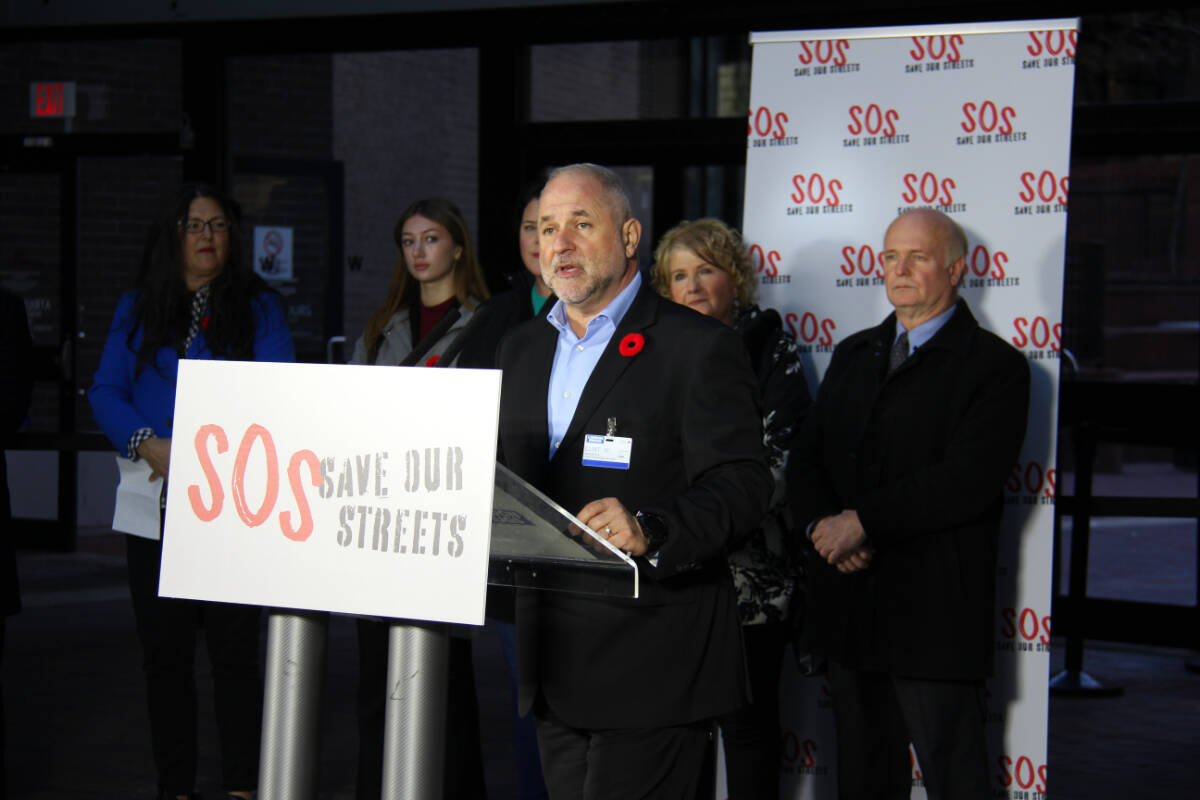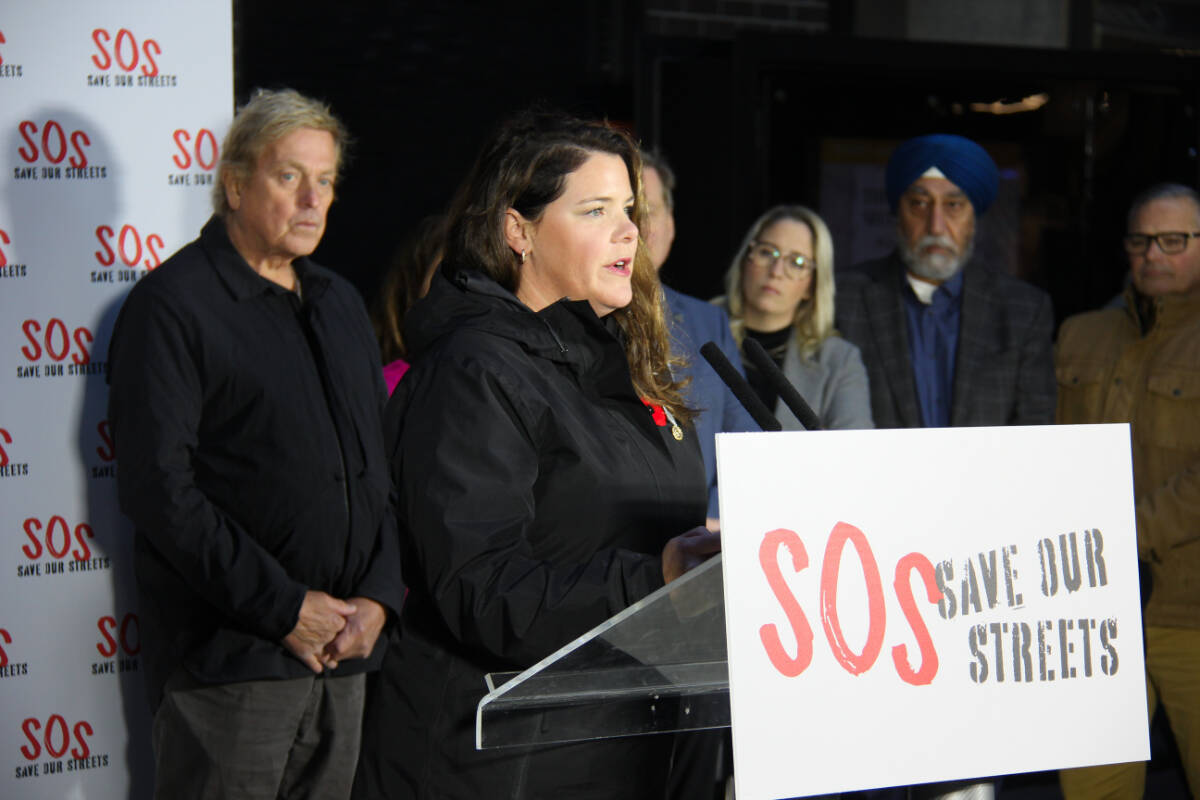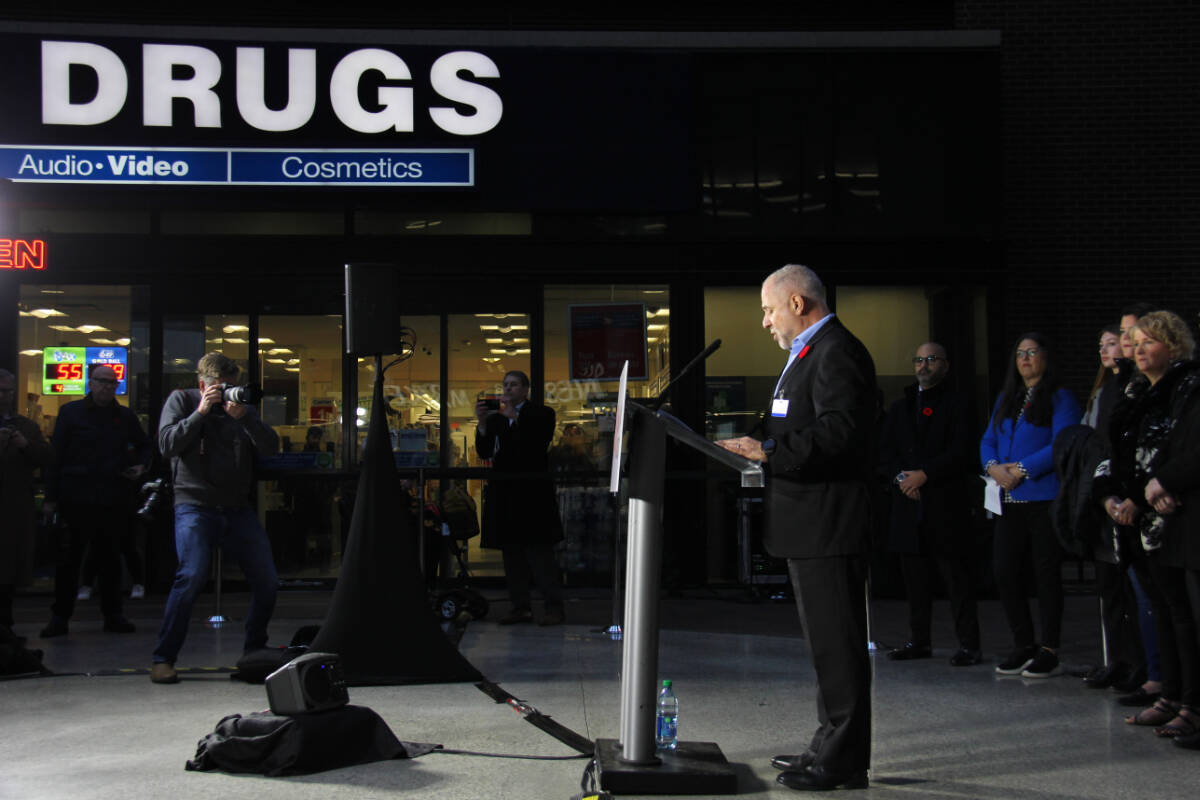A new coalition of B.C. businesses and residents is calling on the province to take greater action to reduce crime and violence.
Called Save Our Streets, or SOS, the group is made up of a number of well-known retailers, such as London Drugs, Aritzia and Lululemon, as well as community organizations from places like Nanaimo, Nelson, Surrey and Kamloops.
Announcing their creation on Monday (Oct. 20), SOS founding member and London Drugs President Clint Mahlman said the current state of crime and violence in B.C. communities has reached a “crisis point.” He said their group is raising the alarm and putting pressure on government to act.
“Governments at all levels have responded in piecemeal fashion but are not acting in unison or with any sense of urgency as street-level problems continue to grow.”
Mahlman said violence towards retail employees has been increasing for years, but that it’s felt especially dangerous recently. The London Drugs president said just a couple days ago a worker in his Mission store tried to stop a banned repeat offender from entering and was threatened by them. A few months earlier, Mahlman recalled, a different employee confronted someone who they believed was stealing and got struck with a hatchet. Mahlman said they’re now considering equipping some employees with stab-proof vests.
He said in 2022, London Drugs lost more than $10 million to theft across its Canadian stores. That figure doesn’t cover the price of repairs from vandalism, Mahlman added, saying a single pane of glass at one of his stores can cost $7,000 to replace.
READ ALSO: No closures planned but London Drugs says escalating violence a concern
The B.C. coalition said retail losses end up impacting shoppers as well, who ultimately absorb increased business costs. SOS estimated retail theft and security costs B.C. families around $500 a year.
Coalition members pointed toward the toxic drug crisis, homelessness and mental illness as some of the issues that may be contributing to crime. Tanya Finley of the Nelson Neighbourhood Network said the lack of supports government is providing for people in such situations is “cruel and disgraceful.” And, she added, those gaps end up impacting the broader community as well.
“Homeowners and renters should not have to have security cameras, bars and gates to sleep safely at night. People that are suffering need dignified treatment. You are the current leader of this province and you need to help us and them or please step aside,” she said, addressing Premier David Eby.
Mahlman said it isn’t just people who are struggling to survive who steal, though. He said organized crime is also behind much of the problem.
The Vancouver Police Department said it doesn’t have numbers readily available on how often that is the case.
Statistics Canada also doesn’t track the cause of theft, but does have data showing how crime has changed over the years.
In 2022, B.C.’s Crime Severity Index was rated at 100.4. That’s worse than a decade prior when the CSI was 94.5, but actually a large improvement from two decades earlier when the CSI was 148. The rate of crime per 100,000 people – the other primary metric used by Statistics Canada – shows things have steadily improved in the same period.
Looking at shoplifting specifically, instances have increased. In 2002 there were 19,858 cases, which grew to 20,135 in 2012 and jumped to 27,140 in 2022. Violent crime has also grown. In 2002, there were 76,767 incidents, followed by 63,904 in 2012 and 81,526 last year.
The numbers suggest while crime overall has not risen, shoplifting and various types of violent offences have.
Mahlman said he senses there is a disconnect between those in positions of power and the experiences of people like his retail workers.
“If this was happening to MLAs, MPs, judges, Crown prosecutors, that someone was coming in and defecating in their office, stealing stuff, stabbing, threatening them with needles, things would have changed by now,” he said.
Speaking to reporters Monday, Premier David Eby said he welcomes the creation of the coalition and said the province is working with the federal government to create stricter rules for violent repeat offenders. Last March, the province committed $25 million over three years to establish teams of police, prosecutors and probation officers, with the goal of identifying high-risk repeat offenders. Eby said they now have 300 people being monitored across B.C.
He said his government is also working to expand mental health and housing supports.
“…but if this group has some other suggestions for us, I’m happy to hear them.”
Mahlman said it isn’t the coalition’s intent or responsibility to tell government exactly what needs to be done, but that they do plan on creating a set of measurable results to track whether things are changing going forward or not. He emphasized that SOS wants to see municipal, provincial and federal governments working together, instead of blaming each other.
READ ALSO: Teams of cops, prosecutors, to target repeat violent offenders in B.C.: Farnworth
READ ALSO: Trudeau says Ottawa looking at bail reform after letter from premiers demands action



